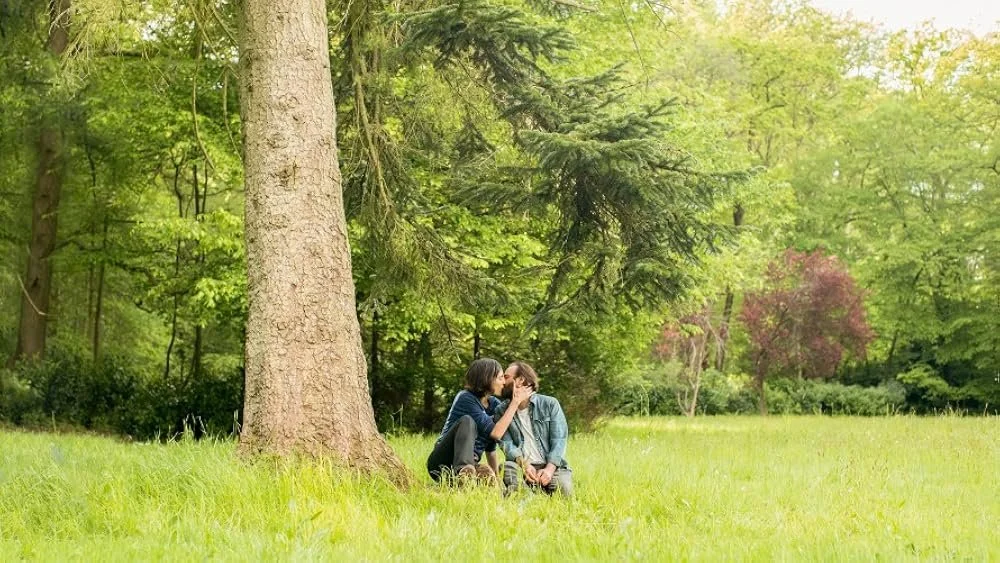Review: ‘Suspended Time’ takes a lethargic look back on lockdown
2025 / Dir. Olivier Assayas
☆ 3/5
“...it felt like a utopia. And that utopia had to end. Immobility can’t be a utopia. Immobility is a void,” director Paul Berger (Vincent Macaigne) says to his therapist over a Zoom call in the early days of the French COVID lockdown.
In Suspended Time, Assayas’s belated rumination on what appears to be his lockdown experience, Paul is living with his documentarian girlfriend, Morgane (Nina d’Urso), and his prickly, recently divorced radio DJ brother, Etienne (Micha Lescot), who has invited his girlfriend, Carole (Nora Hamzawi), to the Berger boys’ family summer home. While perpetually anxious about COVID protocols, the also-divorced Paul has been with Morgane for two years, and the two have a lived-in, touching relationship, taking daily strolls to play tennis and talk about art and their careers. Etienne is tightly wound and furiously makes pancakes, denied the “freedom” that comes from his divorce by the lockdown, while now able to spend an extended time with Carole, who has her own, largely unexplored, anxiety over being the “other woman.”
As you’d expect, Paul and Etienne get on each other’s nerves. There’s not much in the way of drama or significant narrative progression apart from the moments of COVID tension that play like a slighter version of Curb Your Enthusiasm, like when Paul wants Etienne to leave the groceries outside for four hours while Etienne debates him on respecting the “cold chain” and the higher risk of dairy contamination. In another vignette, a new neighbor blasts salsa music during every meal. The humor is cute, but never laugh-out-loud funny.
Both female characters are underdeveloped—Carole more than Morgane—which is a shame because it’s the quieter moments of each couple navigating their relationship where Suspended Time shines. The moments where Paul talks with his therapist about the nature of lockdown or reunites with his daughter give the film soul, but too much time is given to the brothers’ COVID tensions. An idea the film plays with is how we used COVID protocols as a stand-in for culture, and to show caring is interesting conceptually but not necessarily in practice.
Interspersed are metafictional asides where the real Assayas recalls his memories of growing up in the summer home, the neighbors, and his parents over footage and photographs of the surrounding area and black-and-white recreations of past events. Had he made the entire film like this, Suspended Time may have been a richer experience. It certainly doesn’t help that the film’s most interesting ideas about a family’s relationship to place and its things were explored, rather than hinted at, in Assayas’s own quietly profound Summer Hours.
Suspended Time will most likely end up as a curiosity in Assayas’s filmography. Fans of the director will find enough here to enjoy, but there’s little else for anyone not familiar with his work. Had this been constructed during the actual lockdown, it probably would have found some acclaim just by capturing the routines of our collective “lost year.” Arriving a few years later, a quiet reflection like this doesn’t justify a trip back into a time we still want to forget—especially when a much more innovative and aggressive film like Eddington wasn’t enough (at least based on its box-office draw) to get audiences to want to return to 2020.
Watch if you like: Summer Hours, Irma Vep (2022), basically any French summertime movie, and reliving all the annoying things whoever you spent the COVID lockdown with did because they couldn’t deal with their fear of potential death.

